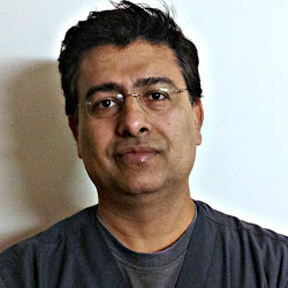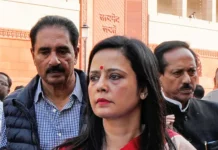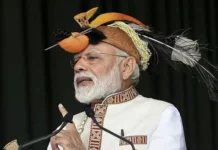
Time to say goodbye to paper-pencil examination!
Dr Munish Kumar Raizada The sensational Vyapam scam has taken the whole country by storm. This admission and recruitment scam in Madhya Pradesh has assumed colossal proportions with close to 50 witnesses and accused dying so far. High level link ups and alleged role of well known politicians has ensured that media takes much interest in the unfolding of the Vyapam scam.
Unfortunately, Vyapam scam wasn’t the only recent news regarding discrepancies in the recruitment and entrance examinations. Last month, the honourable Supreme Court declared the All India Pre Medical Test (AIPMT) void after reports of paper leak surfaced soon after the exam was conducted. Resultantly, lakhs of medical aspirants across the country have to prepare yet again for the most stressful exam of their careers. And the buck does not stop here.
In March this year, Uttar Pradesh Civil Services exam was cancelled after it was reported that the paper was leaked on ‘Whatsapp’ 15 minutes prior to the examination. In 2013, the Staff Selection Commission examination suffered a similar fate. The list of such ‘leaked’ examinations is endless. For someone who is reading such news in the morning newspapers, it is a routine affair. But for the students who prepare for such examinations for months and years, it can come as a huge setback in more ways than one.
Nationwide examinations are an extremely tedious process for both, the students and the organizers. Considering that majority of the examinations in India still follow the pen and paper mode, huge resource mobilization is involved in such examinations.
Add to that the extremely high vigilance required at all the levels and the amount of paper needed for such examinations, and you would understand why such mode of examinations is a bad idea. Yet, only a handful of examinations have taken to ‘online’ mode. But those which have taken this plunge rarely face such issues anymore.
In comparison, most of the International tests such as GMAT, TOEFL and GRE follow a ‘computer based test’ pattern, with no reports of any glitches in recent memory. In 2009, the US based Prometric was hired to conduct online CAT examination. With the IIMs taking the first step, other institutions were expected to follow suit. However, such transition is taking painfully long.
Although the first edition of online CAT had a few hiccups, the process has largely been smooth and hassle free ever since. Last year, Prometric’s five year contract for CAT examination ended and a new contract for CAT examination was awarded to TCS. With an Indian firm taking charge of one of the most significant examinations in the country, this should encourage the other authorities to follow the same pattern.
For the past couple of years, CBSE has been giving an option to choose from online and offline mode of examination to the students appearing for IIT JEE examination. From the 13.03 lakh students who appeared for IIT (Main) exam this year, 1.86 lakh chose the online mode. Although this fraction is just above 14%, experts are of the view that it is expected to rise in the coming years.
There are multiple things that go in favour of online examinations. For one, it can be conducted in batches spread over multiple weeks. As a result, in case of any discrepancy, only a single batch would need to be re-examined and not all the candidates. This also saves the candidates from travelling hundreds of miles and facing exhaustion before reaching their examination centre.
In 2011, the apex body for recruiting officers and clerks in Public Sector Banks, IBPS introduced online mode of examination. Though close to 20 lakh aspirants appear for the IBPS exams each year, there have never been any reports of discrepancies in these examinations in the past four years, which is a testament to the process’ competence.
One of the key roadblocks towards an increased number of online examinations in India is the lack of confidence the test authorities have in private players. Though outsourcing entrance exams to private players is a common phenomenon around the world, most Indian authorities are still averse to this idea. Interestingly, these authorities prefer to trust contractual workers who are involved at various stages of the examination, rather than involving professional organizations with a proven track record.
Another relatively ignored downside of pen-paper mode of examinations is the usage of huge quantities of paper. Two of the most premier examinations in the country, the Civil Services Examination and the Staff Selection Commission examination are given by over 10 lakh candidates each year.
There are a number of other examinations which attract lakhs of aspirants each year. All the talk of paperless initiatives comes to a full stop here.
Crores spent for transporting papers throughout the country significantly inflates the cost of examinations apart from increasing the chances of a security breach. Saving on a huge amount of money and manpower are the other aspects which give an edge to the computer-based examinations.
Computer-based examinations will help us go green also!
Online pattern of examinations bring with them an element of transparency, absence of which forms the basis of scams such as Vyapam. With no chance of tampering with the candidates’ answers, online examinations present a major case for their induction. Minimal logistical requirements and instant results make online examinations a great option.
Whether it is the budget allocation or efforts to revamp the old structures, education has long been ignored by the governments. All the big talks of privatization and increasing the efficiency of the system remains confined to political subjects such as Railways, Infrastructure and Defence. The time is ripe to have a closer look at the examination patterns in the country and provide our youth with a fair and just chance of realizing their true potential.
The author is a Chicago-based columnist. Email ID: pedia333@gmail.com Twitter @drMunishRaizada






